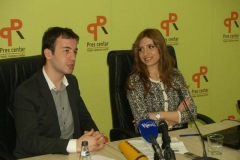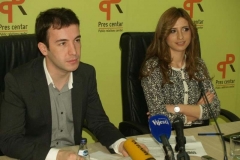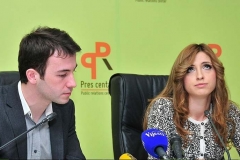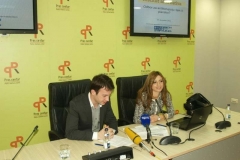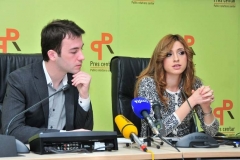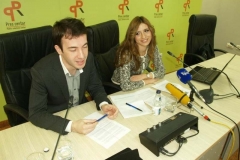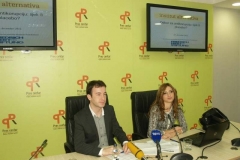Implementation of the Strategy for Public Administration Reform and the accompanying Action Plan has started a year ago. As a result of its regular research activity, Institute Alternative followed the implementation of this strategy and its action plan during this period.
In addition to modernization, rationalization and professionalization of the public administration system, the Strategy for Public Administration Reform recognized the need for strengthening the rule of law and enhancing the accountability of public administration; business environment; quality of public services and institutional stability and flexibility of the public administration system. These goals, as recognized in the Strategy, should be accompanied by increased transparency and ethical behavior in public administration, which would contribute to further integration of the country in the European administrative area.
However, in the hitherto implementation of the Strategy, numerous problems can be observed. Namely, although the Strategy foresees regular six-monthly reporting, this obligation has not been met. One year since the implementation of the Strategy began, not a single report on the implementation of the foreseen activities has been published.
The Council for regulatory reform and business environment improvement, a body responsible for coordinating the activities of this Strategy, held only two meetings since the adoption of this document without even discussing the relevant activities. Therefore, a special body, whose mission would be to coordinate the process of public administration reform, should be formed. Such a body already exists at the local level – Coordination Committee for Local Self-Government Reform.
Unclear division of responsibility and authority between the Interior Ministry and Finance Ministry in terms of key tasks for implementing the Strategy is one of the main problems.
What has been accomplished so far at the level of public administration reform in Montenegro? Everything that has been achieved in 2011 is a result of public administration’s involvement in meeting the seven key priorities of the European Commission which require high level of harmonization with the membership criteria. Therefore, within the framework of the Action Plan for fulfilling the recommendations of the European Commission, a set of new laws were adopted: Law on Public Administration, Law on Civil Servants and State Employees, Law on Territorial Organization of Montenegro and a Regulation on the organization and manner of work in the public administration which placed certain state agencies within the relevant ministries. Also, centralization of inspection surveillance is foreseen as well as the establishment of a single inspectorate which is a significant novelty compared to the previous legal framework according to which inspection surveillance was left to relevant line ministries. Directorate for Inspection Tasks will be operational as of May this year, while inspection tasks will be gradually brought under a single authority with the deadline set for the end of 2013.
Strategy for Development of Inter-Municipal Cooperation in Montenegro covering the period from 2011 to 2015 has been adopted. At the end of December, legal-institutional analysis of the public administration system has been adopted along with the proposal of future provisions aiming to identify problems in the administration functioning (in terms of human, material and technical resources).
In contrast to the already achieved goals, numerous tasks foreseen by the Action Plan for implementing the Strategy have not been fulfilled. Some of them include establishing obligatory training programs for certain categories of civil servants/state employees, enhancing human resources management through central personnel record-keeping, as well as regular assessment of civil servants and state employees’ performance.
At the very end, it is necessary to highlight the need to adopt the Law on Government in order to legally define the organization of the executive, rather than relying on regulations adopted by the government itself.
Having in mind the importance of public administration reform as an ‘umbrella’ for all other reforms in the country, it is extremely important to have a strictly defined institutional coordination of the process in order to avoid ‘poor communication’ and overlapping of authority between the Ministries of Finance and Interior, as well as greater authority of the Finance Ministry than foreseen by the Regulation on Public Administration Organization of Work.
In the forthcoming period, Institute Alternative will continue monitoring the public administration reform in Montenegro in line with principles operating in the European administration area, thereby contributing to the evaluation of the entire process which has been neglected at the government level.
Stevo MUK
President of the Management Board Institute Alternative



 New research conducted by Institute Alternative “Secret Surveillance Measures in Criminal Procedure – Neglected Control” was presented on Wednesday, 4 April 2012 at a press conference.
New research conducted by Institute Alternative “Secret Surveillance Measures in Criminal Procedure – Neglected Control” was presented on Wednesday, 4 April 2012 at a press conference.
